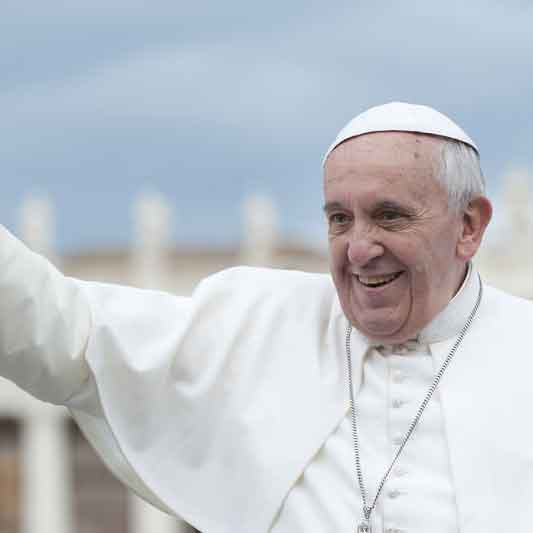In his forthcoming autobiography “Hope,” set to be published on January 14, 2025, Pope Francis discloses that during his groundbreaking visit to Iraq in March 2021, two assassination attempts against him were thwarted by British intelligence services. This is the first public revelation of these security incidents.
The memoir shares that upon his landing in Baghdad, Vatican security officials informed the Pope about two grave threats to his visit to Mosul, discovered by British intelligence. A woman wearing explosives and a van driving at high speed were both halted by Iraqi police before they could reach their targets.
“When I asked the (Vatican) Gendarmerie the following day what was known about the two bombers, the commander replied, ‘They are no longer there,'” Pope Francis wrote in an excerpt published by Italian newspaper Corriere Della Sera. “The Iraqi police had intercepted and detonated them. That, too, was very striking to me. This, too, was the poisoned fruit of war.”
The first-ever papal visit to Iraq by Pope Francis, then 88, took place amidst high security due to continued sectarian tensions and the COVID-19 pandemic. Despite multiple advisors suggesting otherwise, he was resolute in his decision to visit Iraq to show support for the country’s beleaguered Christian community.
The Vatican Gendarmerie and Pontifical Swiss Guard cooperated with local law enforcement to ensure the Pope’s safety during the three-day visit, held in a country still harboring hidden jihadist cells. Pope Francis acknowledged in his memoir that “Almost everyone advised against that trip,” but he felt the need to confront the situation head-on.
During his stay in Iraq, the Pope held several important meetings, including a historic meeting with Grand Ayatollah Ali al-Sistani, a prominent Shia Islam authority. This meeting, which took place in Najaf, represented the fruition of decades of Vatican groundwork that none of Francis’s predecessors had managed to achieve.
The Pope’s autobiography, titled “Hope” in English and “Spera” in Italian, offers the first detailed account of these security threats. The book, initially planned for release after his death, will now be published to coincide with the beginning of the Jubilee celebration, a major year of celebration for Catholics around the world.
The Pope’s visit to Mosul carried special significance as the city had endured significant damage under the rule of the Islamic State. Viewing the destruction from above, the Pope referred to the city as “an X-ray of hatred,” underscoring the dire consequences of sectarian violence in the region.
The successful thwarting of these assassination attempts had far-reaching implications. If the attacks had been successful, it would have triggered the election of a new pope, potentially undermined the credibility of the Iraqi government, and risked exacerbating religious tensions globally. This disclosure follows decades after an earlier assassination attempt on Pope John Paul II in Vatican City in May 1981.
Since assuming leadership of the Catholic Church in 2013, Pope Francis has embarked on more than 40 foreign trips, continually highlighting the importance of interfaith dialogue and reconciliation in regions affected by conflict.

